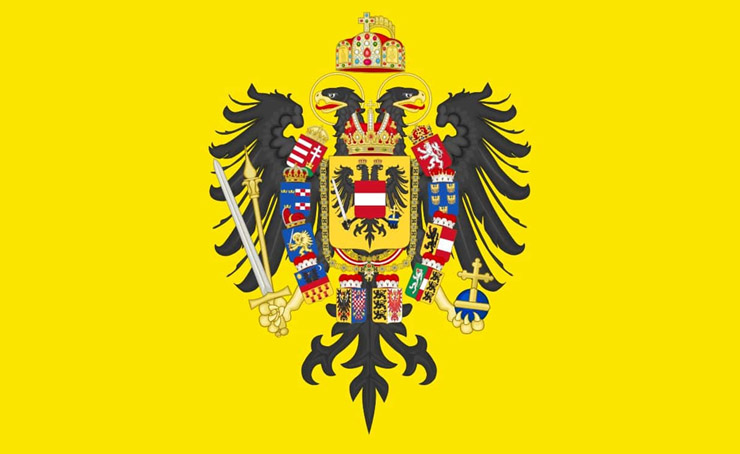
마리아 테레지아 (1717-1780)
마리아 테레지아는 합스부르크 군주국 의 유일한 여성 통치자이자, 합스부르크 왕가의 마지막 군주였다. 그녀는 오스트리아, 헝가리, 크로아티아, 보헤미아, 만토바, 밀라노, 갈리치아와 로도메리아, 오스트리아령 네덜란드와 파르마 등의 통치자였다.
[자세히보기]출처 : Wikipedia
Maria Theresia (1717-1780)
Maria Theresa Walburga Amalia Christina was the only female ruler of the Habsburg dominions and the last of the House of Habsburg. She was the sovereign of Austria, Hungary, Croatia, Bohemia, Transylvania, Mantua, Milan, Lodomeria and Galicia, the Austrian Netherlands and Parma. By marriage, she was Duchess of Lorraine, Grand Duchess of Tuscany and Holy Roman Empress.
[Learn more]Source : Wikipedia
ⓗ House of Habsburg (13C-20C) / 합스부르크 가문

합스부르크 가문
합스부르크 가문은 유럽 왕실 가문들 중 가장 영향력있던 가문 중 하나이다. 1438년부터 1806년까지 신성 로마 제국의 제위는 연달아 합스부르크 가문에서 나왔다. 특히 오스트리아의 황실을 거의 600년 동안 지배한 것으로 유명하다. 합스부르크라는 이름은 슈바벤 지방(스위스)에 세워진 합스부르크성에서 유래했다고 한다. 이 가문은 독일의 남부 지방에서 점점 영향력을 확대하여 신성 로마 제국에서 큰 세력으로 부상하였고 나중에는 신성 로마 제국 황제의 선출에도 개입하였다.
[자세히보기]출처 : Wikipedia
House of Habsburg
The house takes its name from Habsburg Castle, a fortress built in the 1020s in present-day Switzerland by Radbot of Klettgau, who named his fortress Habsburg. His grandson Otto II was the first to take the fortress name as his own, adding "Count of Habsburg" to his title. In 1273, Count Radbot's seventh-generation descendant, Rudolph of Habsburg, was elected King of the Romans. Taking advantage of the extinction of the Babenbergs and of his victory over Ottokar II of Bohemia at the Battle on the Marchfeld in 1278, he appointed his sons as Dukes of Austria and moved the family's power base to Vienna, where the Habsburg dynasty gained the name of "House of Austria" and ruled until 1918.
[Learn more]출처 : Wikipedia










 HOME
HOME


 0
0




